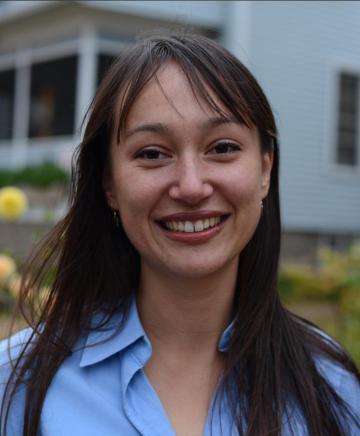High School
Amherst Regional High School, Amherst, MA, 2005Undergraduate Education
B.A. in Environmental Science and Public Policy from Harvard College, 2009Graduate Education
Candidate for Ph.D. in Environmental History, University of Wisconsin–Madison (anticipated 2019)Profile
What can a 150-year history of laundry washing in the United States teach us about environmental stewardship and environmental justice? Quite a lot, as one quickly comes to realize when talking with HDTF alumna Spring Greeney, currently a Ph.D. candidate at the University of Wisconsin–Madison. “As an environmental historian, I try to make obvious the overlooked ecological relationships—often hidden—that have built the world we live in today. My research examines the role that commercial chemists played across the 20th century in transforming what domestic workers and homemakers expected ‘cleanness’ to mean . . . to look like, feel like, and smell like. Though we often think about the impacts of industrialization on downstream ecosystems or in factories, my research invites readers to consider what industrialization has meant for nature right where we live: in our homes and in our bodies.”
As Greeney points out, many of us take it for granted that cleanness smells like a bottle of Tide laundry detergent, is bright and unfaded, and has the soft, gentle feel of tufted cotton. But it turns out that cleanness has not always been this way. Nineteenth-century laundresses scented wash water with birch bark and sassafras, wrestled with rancid fat to make it into odorless soap, and poured ox bile, caustic lye, and other stinky ingredients into the washtub. “I turned to chemists because they as a group of actors have, over the past century-and-a-half, rewired our very senses. That our seemingly biological understanding of cleanliness has been constructed—and constructed for profit—should give us pause. I hope this history can cause us to ask: what are the smells, tastes or other sensory experiences I want to have as a part of my life? Who gets to make those decisions?”
Although Greeney’s dissertation clearly has a strong philosophical undertone, she entered college on more of a science-oriented path. “By the time I arrived at Harvard, I had decided that to become the most effective environmental advocate I could be, I needed to become a scientist.” A friend’s invitation to a talk by environmental historian William Cronon expanded her focus to incorporate the humanities. His talk, entitled “Saving Nature in Time: Why Environmentalism Needs History as Much as Science,” was a lightbulb moment for Greeney. “In some ways, this should not have been a surprise. I first came to fall in love with nature by reading . . . poetry, fiction, nonfiction. I’ve always had a lot of respect for the power of the written word. And yet I had never heard so clearly the case made for the role that artists, writers, historians, and philosophers can play in furthering conservation goals.”
Greeney does not take for granted the material support that the Henry David Thoreau Foundation and institutions like Harvard have provided. “I grew up in a household that was poor. Not in poverty, but poor. The scholarship was the support that freed me to chase after questions I was genuinely excited about, and to find a community at Harvard, and then at the University of Wisconsin–Madison, that was interested in similar things.”
As she turns her sights toward completing her Ph.D., Greeney believes that the goals of environmental stewardship and conservation sorely need more of a historical perspective. Proposed solutions to environmental problems, in her opinion, frequently apply “a very narrow and functionalist definition of conservation and sustainability.” For Greeney, the most compelling prospect of broadening these definitions is with young people, particularly at the high school level. “Any history of social movements teaches that young people have power. They have the opportunity to further sustainability goals and build social and political systems where the environment is at the center rather than an afterthought.”
But it is not just the young who can benefit from a historical perspective on environmental issues. For all who care about the environment, history can empower us not only to avoid past mistakes, but also to engage in a more complete and grounded conversation about the environmental future that all members of society—including the unpaid homemakers, laundresses, and washerwomen profiled in Greeney’s research—want.
